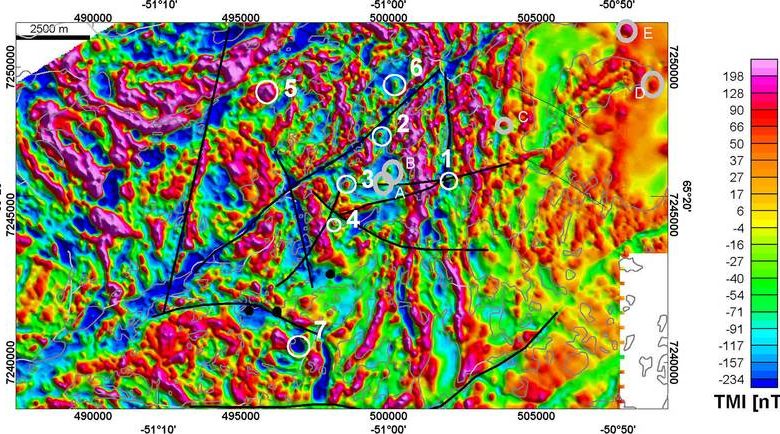All Categories
Featured
Table of Contents
Geophysical Survey - Durham University in Balcatta Oz 2023
Much of the image includes blank locations now with little or no radar reaction. The "courtyard" wall is still revealing highly, nevertheless, and there are continuing suggestions of a difficult surface in the SE corner. Time piece from 23 to 25ns. This last piece is now nearly all blank, however a few of the walls are still revealing highly.
How deep are these pieces? The software I have access to makes estimating the depth a little challenging. If, nevertheless, the top 3 pieces represent the ploughsoil, which is most likely about 30cm think, I would guess that each slice is about 10cm and we are only coming down about 80cm in total.

Fortunately for us, many of the websites we have an interest in lie simply below the plough zone, so it'll do! How does this compare to the other methods? Comparison of the Earth Resistance data (leading left), the magnetometry (bottom left), the 1517ns time slice (leading right) and the 1921ns time slice (bottom left).
Geological And Geophysical (G&g) Surveys in Roleystone Australia 2022
Magnetometry, as talked about above, is a passive strategy determining regional variations in magnetism versus a localised absolutely no worth. Magnetic susceptibility study is an active strategy: it is a measure of how magnetic a sample of sediment could be in the existence of an electromagnetic field. Just how much soil is checked depends upon the diameter of the test coil: it can be very little or it can be reasonably large.
The sensor in this case is extremely little and samples a tiny sample of soil. The Bartington magnetic susceptibility meter with a big "field coil" in use at Verulamium during the course in 2013. Top soil will be magnetically improved compared to subsoils merely due to natural oxidation and decrease.
By measuring magnetic susceptibility at a relatively coarse scale, we can detect locations of human occupation and middens. Unfortunately, we do not have access to a trustworthy mag sus meter, but Jarrod Burks (who helped teach at the course in 2013) has some outstanding examples. Among which is the Wildcat site in Ohio.
Geophysical Surveys In Portland, Or in Leeming Australia 2021
These towns are frequently laid out around a central open location or plaza, such as this reconstructed example at Sunwatch, Dayton, Ohio. The magnetic susceptibility study assisted, however, specify the primary area of occupation and midden which surrounded the more open area.
Jarrod Burks' magnetic vulnerability study arises from the Wildcat website, Ohio. Red is high, blue is low. The strategy is for that reason of terrific use in defining areas of general occupation rather than identifying particular functions.
Geophysical surveying is a used branch of geophysics, which utilizes seismic, gravitational, magnetic, electrical and electro-magnetic physical methodologies at the Earth's surface area to determine the physical residential or commercial properties of the subsurface - Geophysical Surveys - U.s. Geological Survey in Kardinya Oz 2022. Geophysical surveying techniques typically measure these geophysical properties along with abnormalities in order to assess numerous subsurface conditions such as the presence of groundwater, bedrock, minerals, oil and gas, geothermal resources, spaces and cavities, and far more.
Latest Posts
Geoscientist - College Of Science in St James Aus 2021
What Is A Seismic Survey? in Straffon Oz 2021
What Are Geological, Geochemical, in Hovea WA 2022